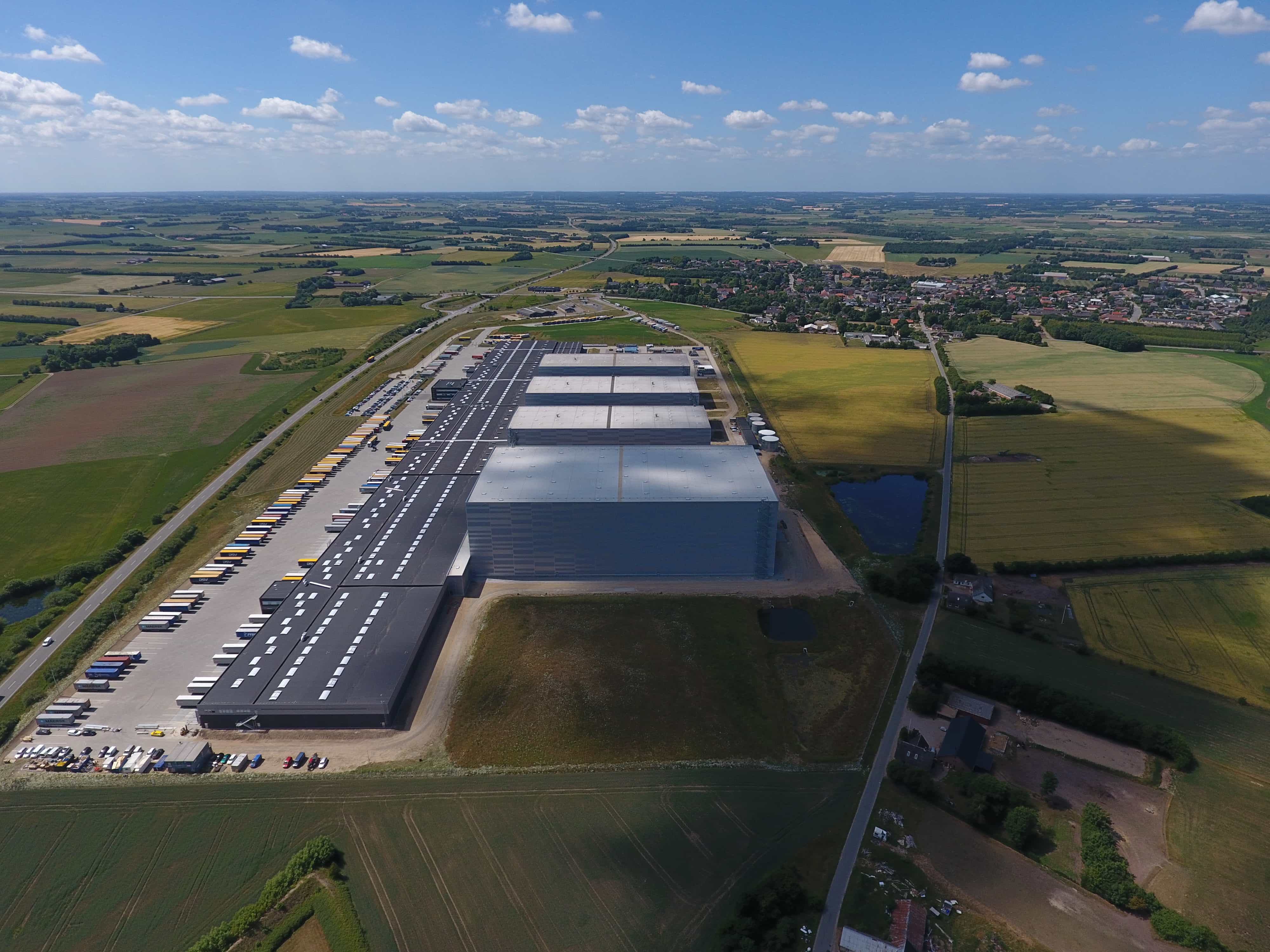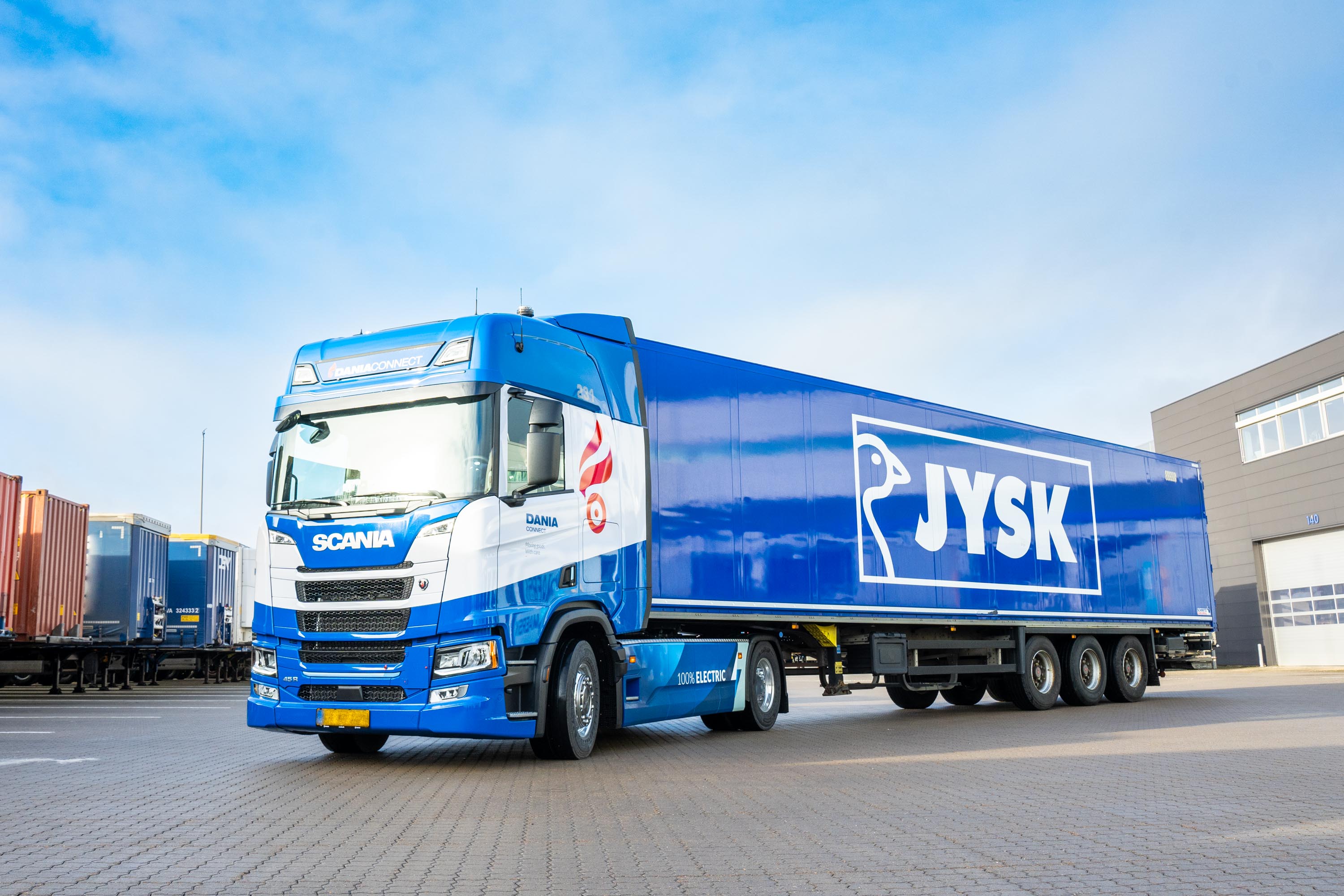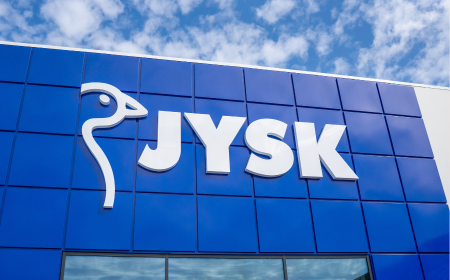JYSK deploys electric trucks for container transport in Denmark
JYSK and Dania Connect have started a collaboration on the use of electric trucks between the Port of Aarhus and JYSK's distribution centre in Uldum. It will reduce CO2e emissions by up to 37%.
Every day, more than 50 containers are transported from the Port of Aarhus to JYSK's distribution centre in Uldum with goods such as mattresses, bed linen and garden furniture. Now 2 electric trucks from Dania Connect have been deployed on the route, which will drive 8 round-trip trips every day.
This is the first time JYSK is replacing diesel trucks with electric trucks in Denmark and JYSK expects to be able to reduce CO2e emissions with the replacement by 37%. In addition, the solution will also give JYSK valuable insights to expand the use of electric trucks on other routes in the country in the future.
"We are pleased that we now, together with Dania Connect, have electric trucks on the Danish roads to transport our goods between the Port of Aarhus and Uldum. In JYSK, we have an ambition to reduce our CO2e emissions in the coming years, and even though our global logistics network requires many different solutions to achieve the goal of reducing our climate impact, I have great expectations for the learnings from these electric trucks to expand the scheme," says Executive Vice President Logistics, Ole Thomsen.

"We are happy to be able to support JYSK in their work to reduce their CO2e footprint in their transport. We have been working on the green transition for a long time and have a goal of 50% of our trucks running on electricity by 2030. We believe that this is the way forward to create a more sustainable transport in the future," says Group CEO and Owner of Dania Connect, Frank Hjortekær-Jensen.
More solutions to reduce CO2e on transport
In addition to the new electric trucks from Dania Connect between the Port of Aarhus and JYSK's distribution centre in Uldum, JYSK is implementing several initiatives in other countries to make the transport of goods more efficient and reduce the climate impact.
"One thing is switching from, for example, diesel to electric trucks, but we are also exploring many other solutions in our logistics network. Among other things, we look at how to pack our pallets with goods optimally and how to get as many goods as possible into the transport. In addition, local solutions can often be found in different countries that do not necessarily work across the whole of Europe or the whole world," explains Ole Thomsen.
Examples from Sweden and Finland:
Containers from the Port of Gothenburg to JYSK's distribution centre in Nässjö are transported by electric trains as far as possible, after which electric trucks drive the containers the last distance to the distribution centre. To get the goods from the distribution centre in Nässjö all the way to the shops in northern Sweden, containers are put back on electric trains instead of using conventional diesel trucks. From the train stations in northern Sweden to the local shops, the containers are delivered by trucks that run on either vegetable oil or biogas.
When conventional trucks running on diesel are the only solution, it is important to get as many goods as possible into the transport. One way to do this is to put two trailers on one truck, which is called High Capacity Transport or modular road trains. JYSK uses this solution to reach the stores in northern Finland. By having one truck with two trailers – instead of two individual trucks with one trailer each – up to 27 percent of emissions can be saved.
JYSK plans to test the solution with modular road trains in more countries as it becomes possible on longer distances in Europe.






